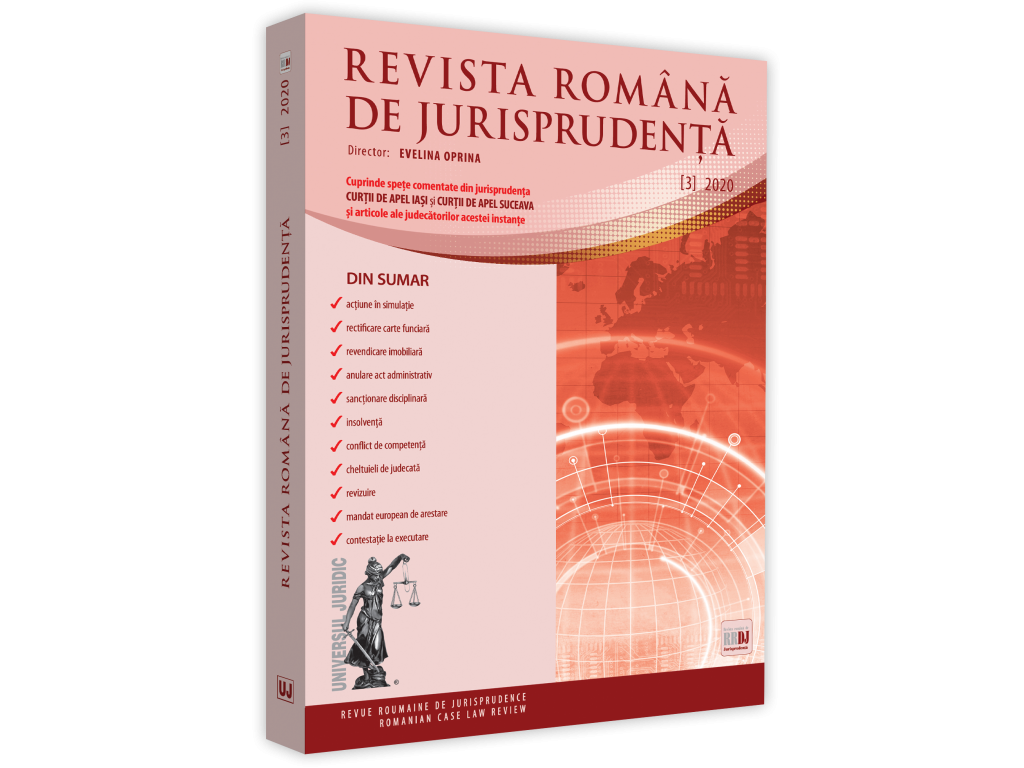Criminal participation as complicity. Lack of criminal decision of the accomplice to commit the robbery. Legal classification. The application of complementary and ancillary punishments by reference to the case circumstances
DREPT PENAL ŞI DREPT PROCESUAL PENAL
Abstract
Criminal participation, in the form of complicity, even moral, in committing the crime of robbery, requires a pro-active attitude on the part of the accomplice, to participate in the decision to commit a robbery, to dispossess the victim by any means, to determine how to act, to lurk and follow the injured person, to support the activity of the perpetrator, to encourage, then participate to sharing the goods stolen by the perpetrator through
violence. In the absence of such elements, which may characterize the subjective position analogous of the accomplice with that of the perpetrator, of committing theft by any means, which are alternative ways of committing robbery and without any evidence that the accomplice perceived the possibility to use violence, there is no criminal participation to committing the complex offence of robbery, but only of complicity to theft. The illegal acts committed by the accomplice, having the necessary characteristics for the existence of the component of the simple theft and those concerning the legal subject, the passive subject, the place and time of the offence, in achieving the same criminal decision, correspond to the continued form of complicity to theft. Prohibition of the rights provided in art. 66 letter n) of the Criminal Code is ordered taking into account the nature and gravity of the offence committed, the circumstances of the case, the consequences, the fear that in future the accused will commit other illegal actions against the injured person unless the accused is prohibited to approach the injured person. If these consequences cannot be confirmed from the file documents and the
accused and the injured person live in different localities and there is a minimum likelihood to meet in the future, the prohibition of the right set forth in Art. 66 letter n) of the Criminal Code has no evidentiary support.








